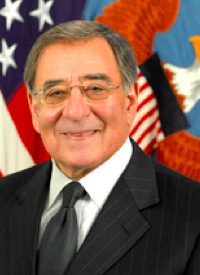
After the two-day gathering, the three defense chiefs promised in a press release to increase their cooperation in dealing with supposed continental threats. They also vowed — despite the U.S. posse comitatus law generally prohibiting involvement of the armed forces in domestic law enforcement — to explore more ways to support “security” agencies and collaborate on responses to natural disasters.
According to the statement released after the summit, “transnational threats” necessitate “transnational responses.” As such, more integration is supposedly needed. Finally, the trio announced that they would inform their “leaders” about the results of the meeting prior to the upcoming “North American Leaders' Summit” scheduled for April.
"By virtue of our geography, our peoples, and our trading relationship, our three nations share many defense interests,” the defense bosses claimed in a joint statement. “Threats to North America and the hemisphere are increasingly complex and require non-traditional responses. Building upon the trilateral collaboration under the North American Leaders Summit process, we share a determination to enhance our common understanding of those threats and of the approaches needed to address them.”
One of the main focuses of the controversial summit, according to officials and reports, was ever-closer cooperation in the increasingly costly, unpopular, and deadly so-called “war on drugs.” In Mexico, some 50,000 people have been killed in recent years as the military joined the battle. American taxpayers, meanwhile, have financed much of the unconstitutional “war.”
“Our countries are committed to working together to address challenges in the region. We know that transnational threats require transnational responses,” the three claimed. “With this in mind, we have agreed to enhance our cooperation to support efforts to counter transnational criminal organizations and to respond to natural disasters in the hemisphere.”
The meeting established a “framework” to build up the continent’s “resilience” by pursuing an agenda based on ever-closer trilateral cooperation on defense and related issues, according to the news release. And all three of the defense chiefs praised the progress they had made.
"Canada, the United States and Mexico share common challenges and concerns when it comes to the defense and security of North America," opined Canadian Defense Minister Peter MacKay in the press release. "This inaugural trilateral defense meeting formalized and strengthened the necessary cooperation between our three countries, and allows us to move forward to ensure the defense and security of our citizens and continent."
According to news reports citing the defense chiefs, the three governments will be sharing more “intelligence” and spend more time patrolling the continent’s waters. "This very ambitious goal of coordinating our efforts goes beyond any one specific threat," MacKay was quoted as saying by CNN.
The Canadian defense boss also claimed that Mexico’s problems were Canada’s problems as well, citing the fact that some Canadians visit the nation and a few even live there. Mexican officials, meanwhile, offered a presentation about the growing tsunami of death and destruction wrought by the drug war.
Panetta claimed that the three nations shared a “similar identity” supposedly based on the principles of “liberty and democracy.” He also pointed to the fact that Canadian and American troops are occupying Afghanistan together while U.S. and Mexican forces “have long cooperated in a number of areas.”
The “historic” meetings in Ottawa, Panetta said, offered an “unprecedented opportunity” to adopt a “common approach” to what he described as “continental security.” "I think all of us think today has been an important day because I think all of us recognize the importance of dealing with this threat to North America, this threat to security, this threat to our people," he claimed, referring to the drug war.
Even as Latin American governments debate legalization of drugs, the Obama administration has vowed to wage more and more war. In recent months, as official calls for decriminalization in the region have grown louder, Vice President Joe Biden and “Homeland Security” boss Janet Napolitano urged leaders to keep fighting the battle, promising more U.S. tax dollars to regimes that fight with sufficient vigor.
After the trilateral defense talks in the Canadian capital, most of the news coverage dealt with Panetta’s rejection of public opinion in guiding the administration’s war-making strategy. Responding to a recent New York Times poll showing that well over two thirds of Americans want U.S. troops out of Afghanistan, the controversial U.S. defense chief essentially said taxpayers’ thoughts on the matter were irrelevant.
"We cannot fight wars by polls," Panetta told reporters. "There's no question that the American people have tired of war just like the Afghan people have tired of war" but the Obama administration will continue pursuing its “strategy” there anyway, he noted.
Panetta also contradicted Obama and Secretary of State Hillary Clinton by claiming the supposed “mission” in Afghanistan was now to ensure that the Taliban — once a close U.S. ally, funded and trained by American taxpayers — would not find a “safe haven” there. The President has said on multiple occasions that he is seeking an agreement with the Islamist group that could see it restored to power.
In addition to the public, polls also show that U.S. troops are quickly losing confidence in the wars and their Commander-in-Chief. And earlier this month, Panetta sparked an avalanche of criticism by ordering American soldiers to disarm before he gave a speech in Afghanistan.
Before that, the defense chief was already under fire for publicly announcing that the administration would seek permission from “international” authorities to wage war — and possibly notify lawmakers later. Critics said the statement smacked of “treason” because the Constitution specifically states that only Congress has the power to declare war.
Of course, analysts and lawmakers are also extraordinarily concerned about the administration’s efforts to pursue North American “integration” — largely in the shadows and without any sort of authorization from Congress, the Constitution, or the public. Under Obama, the scheme has accelerated even more dramatically than under George W. Bush.
According to analysts, the three governments are pursuing a similar trajectory toward “integration” as the model that was used by elites in Europe to erect the troubled European Union regime. It began with “free” trade agreements and was followed by closer cooperation in various fields.
Eventually, the process in Europe culminated in virtually the complete erosion of national sovereignty. And despite public opposition, EU leaders continue to seize more and more power at the expense of citizens and national authorities.
In North America, prominent voices have proposed everything from a single currency to a continental “parliament.” U.S. embassy cables released by WikiLeaks, meanwhile, revealed that official progress toward a “North American Union” has been underway for many years.
Critics from all three nations and from across the political spectrum have been fighting the plot for years. But like in the EU, despite overwhelming opposition, governments are proceeding anyway. And the process is quickly picking up momentum.
Photo: U.S. Secretary of Defense Leon Panetta
Related articles:
WikiLeaks Exposes North American Integration Plot
U.S. & Canada Agree to Common "Perimeter"
Reports: CIA Working with Mexican Drug Cartels
Obama to Host North American Summit on “Security,” Global Warming
Leon Panetta and the Institute for Policy Studies
Obama Adm. Will Seek "International Permission" for Going to War
Poll: Troops Losing Confidence in Obama, Wars
Déjà Vu: Obama's Military Actions in Syria May Be Impeachable
Latin America Debates Drug Legalization; Obama Demands More War on Drugs
“Drug Lords” Targeted in Fast & Furious Worked for FBI
Mexican Drug Trafficker Says He Worked With Feds
Feds Purposely Keeping U.S. Borders Wide Open, Experts Say
Secretary Clinton Says No Peace Without the Taliban
Obama: U.S. Waged Afghan War Incorrectly for Years, Taliban Now Welcome



